Category — Life
The stories we tell
I think about stories all t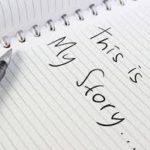 he time. Or, more accurately, I “think story” all the time. I think about the story the experience I am having will make, often in real time and especially if the experience is less than wonderful. “This will make a good story,” I might say to myself (I did say to myself) as an 18-wheeler spewed a tsunami of gritty road water in my face on the afternoon of the first day of a three-day bike trek. And, yes, I did write about it. “This will make a good story,” I might say to myself (I did say to myself) when, one morning not long ago, I stepped out the back door into a cool, lovely Oregon morning and skidded halfway across the porch when my bare foot encountered the splayed (still warm) guts of a vole the cat had proudly caught and eviscerated. And see, I just wrote about it.
he time. Or, more accurately, I “think story” all the time. I think about the story the experience I am having will make, often in real time and especially if the experience is less than wonderful. “This will make a good story,” I might say to myself (I did say to myself) as an 18-wheeler spewed a tsunami of gritty road water in my face on the afternoon of the first day of a three-day bike trek. And, yes, I did write about it. “This will make a good story,” I might say to myself (I did say to myself) when, one morning not long ago, I stepped out the back door into a cool, lovely Oregon morning and skidded halfway across the porch when my bare foot encountered the splayed (still warm) guts of a vole the cat had proudly caught and eviscerated. And see, I just wrote about it.
But I also think more deeply, more seriously about the stories we tell ourselves about ourselves and the stories others tell about us. I don’t mean made-up stories. I mean the narratives we construct to help give shape to our lives and make sense of our experience. I mean the stories others tell about us – again, not fabricated but constructed from their perceptions and the memories they retained – that tell us not so much about ourselves but about the people telling the stories.
I think about the men I work with at Oregon State Penitentiary, Lifers all, convicted murderers all, and the way they are learning to create narratives that are about something other than the worst thing they ever did, the lowest, most shameful moment in their lives. I think about the power of telling that story to yourself. And I think about a parole hearing I sat in on recently and the competing narratives I heard: One was the story of transformation, the 30 hard years of making sense of the senseless, of learning how to take responsibility, of figuring out how to live with the guilt, the anguish you caused so many people, of struggling to remake yourself into person who could never do what that person you were 30 years ago did. And then there was the other story, the one steeped in pain as raw today as it was three decades ago, a story of violence vividly remembered, of families shattered and lives forever altered, a story so often told, so often relived and remembered as to be truly indelible.
Both stories are true. But the story of pain, of the past, proved more compelling to the parole board.
And so the man who told the transformation story, a man who’s been in my writers’ group for almost two years, is now faced with another story to tell, a narrative that helps make sense of the parole board experience, a story that can help him process, understand and move forward from that experience. He’s working on it. I’m there to help.
That’s my story.
July 19, 2017 No Comments
All hail the LIBRARY
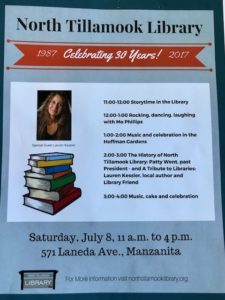 For those of us who were looking for points of pride yesterday as our country commemorated its birth, for those of us who were concerned that we had little to celebrate about our country during these dark, dark days, may I just say:
For those of us who were looking for points of pride yesterday as our country commemorated its birth, for those of us who were concerned that we had little to celebrate about our country during these dark, dark days, may I just say:
The free public library.
Yes, we can claim that. We did that. We can wave our flag about that.
As with most wonderful ideas that happened a long time ago in this country, Benjamin Franklin figures into the narrative. He founded a lending library in Philadelphia in 1703. But the country’s first free (which is to say, tax supported) public library opened in the spring of 1833 in Petersborough, New Hampshire. The more famous (and erroneously claimed as “first’) Boston Public Library opened it doors in 1852. In the 1890s, Butte, Montana city boosters opened that city’s public library “as an antidote to the miners’ proclivity for drinking, whoring and gambling.” (I’ve never been to Butte so I don’t know how that worked out for them.)
A few years later, millionaire (when that meant something), bibliophile (when that meant something)and New York governor Samuel Tilden bequeathed a fortune to establish the extraordinary New York Public Library. (Imagine, for a moment, the current Governor of neighboring New Jersey doing anything for the public good.) And then there was Andrew Carnegie, industrialist-philanthropist, who funded the establishment of more than 2,500 libraries worldwide, 1,689 of which were in the U.S. Today, in case you’re interested, we have more than 16,000 public libraries.
Libraries open the world of books to us. Books open the world to us. It’s that simple. It’s that powerful.
We support public libraries with our tax dollars (our personal donations, our endless bake sales). We support libraries for the good of all, for the enrichment and betterment of all. We don’t say: I’m rich enough to buy my own books. Why should my tax dollars support libraries? If we hear that rhetoric, or a corollary: I’m rich enough to send my kids to private schools, or I don’t have children, why should I support other people’s children’s public education? we must label it for what it is: Deeply un-American. Not the attitude, not the policies, not the fundamental beliefs that reflect what true patriots celebrate. What I celebrated yesterday.
This Saturday, I am so very proud to help the Manzanita Public Library, part of the Tillamook County Public Library system, commemorate its 30th anniversary, 30 years of opening the world of books, which is to say, the world, to the lovely folks in this town that is my second home.
July 5, 2017 No Comments
Bunk, balderdash, malarkey
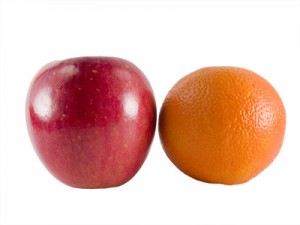 Lest you think this post is akin to Nero fiddling while Rome burned (which he didn’t, by the way: The fiddle wasn’t invented yet.), I will say pro-actively and in my own defense that I DO, in fact, think and care about MUCH MORE IMPORTANT things than the subject of this post. But, frankly, I am all Comey-ed, Trump-ed and Session-ed out. Oh, that’s yesterday. Today there’s a horrific fire, yet another crazed shooter. These neural pathways need a momentary rest. And so I am allowing myself to feel righteous indignation about something else. Something small. Like these stupid sayings. I am calling bullshit on these sayings.
Lest you think this post is akin to Nero fiddling while Rome burned (which he didn’t, by the way: The fiddle wasn’t invented yet.), I will say pro-actively and in my own defense that I DO, in fact, think and care about MUCH MORE IMPORTANT things than the subject of this post. But, frankly, I am all Comey-ed, Trump-ed and Session-ed out. Oh, that’s yesterday. Today there’s a horrific fire, yet another crazed shooter. These neural pathways need a momentary rest. And so I am allowing myself to feel righteous indignation about something else. Something small. Like these stupid sayings. I am calling bullshit on these sayings.
“That’s like comparing apples to oranges” – meaning you can’t compare the two because they are so different. What? They are both fruit. They both grow on trees. They are spherical. They are both in the top five most-consumed fruits in America. Why the hell can’t you compare them? Apples are better than oranges. See. I just compared them.
“Everything in moderation.” Seriously? Like love your children in moderation? Like be moderately creative? Moderately empathetic? Moderately generous? I. Don’t. Think. So. Be excessively loving. Burn with creativity. Open all the gates to empathy. Be generous to a fault. Because it’s not a fault.
“One picture is worth a thousand words.” Speaking as both a writer and a photographer, let me say: Bullshit. Still images can have enormous power and emotional resonance. It is possible to read subtext into an image. But not 1000 words of subtext. Or text. Words also have power and resonance. Aside from communicating emotion, which images do quite well, words can communicate what happens or happened outside the frame: backstory, context, inner and outer motivation, relationships, nuance. In fact, my friends, one word might be worth a thousand pictures. Love. Trust. Respect.
“Don’t sweat the small stuff.” First of all, in the scope of things in this world, in the universe, in the ether of time, it’s all small stuff: your divorce, your kid’s shitty report card, the 45th president. Small stuff. Second, of course sweat the small stuff. From a writer’s point of view, it’s all about sweating the small stuff: laboring to find the single right word, cogitating over the use of a comma, spending an hour crafting a single sentence that sings. It is the culmination of sweating all the small stuff that leads to the good, big stuff. Now if I could only find the single right word for stuff.
“Live every day as if it were your last.” Okay, I don’t know how YOU would live your final 24 hours on earth, but here’s what I’d do: Plan A: All-day hike among the early summer wildflowers in Kootenay National Park, British Columbia, fueled by multiple generous handfuls of high-quality gorp. Plan B (should I be physically incapacitated on my last day): Binge watch every Thin Man movie while eating chocolate éclairs (maybe a cannoli or two thrown in) and having my feet rosemary-oil massaged. So, really, I can’t live every day as if it were my last, can I?
Your turn.
June 14, 2017 2 Comments
My so-called (Facebook) life
 Here’s what a few of my friends were up to today (via Facebook): Taking a dip in the Blue Lagoon in southwestern Iceland; eating brunch at a café in an impossibly picturesque French village; signing advance copies of her brilliant new book at BEA in New York; celebrating 18 years of marriage so perfect that its participants still swoon over each other.
Here’s what a few of my friends were up to today (via Facebook): Taking a dip in the Blue Lagoon in southwestern Iceland; eating brunch at a café in an impossibly picturesque French village; signing advance copies of her brilliant new book at BEA in New York; celebrating 18 years of marriage so perfect that its participants still swoon over each other.
Here’s what I did: Climbed a 12-foor ladder with a broom and a dust rag to bat at spider webs and sweep up dead insect carcasses in the vaulted entryway of my unkempt home. Cleaned the cat litter box because apparently I am the only one with a sense of smell in this household. Drank 4 cups of tea and chain-chewed most of a pack of Orbit Sweet Mint gum while sweating my way through the writing of a chapter of my new book, the book that for six months it seemed that no publisher wanted.
All this might lead me to suffer from the now well established Facebook-fueled FoMO phenomenon (Fear of Missing Out), that feeling that all your peers are doing, in the know about or in possession of a something better than you. Disturbingly but not surprisingly, “FoMO” was added to the Oxford English Dictionary in 2013. But, actually FoMO is not where this leads me. Or at least not all the time.
Where it leads me is to a deep sadness about our insistent (and it seems to me increasing) lack of authenticity. (I do NOT mean the happy and successful FB friends I referenced above are inauthentic! I mean the FB world can be and can encourage us to be.)
Facebook is an easy target – too easy. It is, literally, the face we want to show to the world, and most of us want to show our best face. Most of us don’t leave the house without “putting on our face” (and I’m not talking foundation and blush here). Many of us have a “game face” we use when we believe it is warranted, or to our advantage. We all, at one time or another, employ a façade – that is, an outward appearance that is maintained to conceal a less pleasant or creditable reality.
I think the more we do this, and the more circumstances during which we do it – Facebook being only one — the farther away we get from who we are. And over time, creating and perfecting that façade, training ourselves to conceal, walking that talk, we deepen and strengthen those particular neural pathways. And we forget who we are.
I mean we really forget.
June 7, 2017 2 Comments
Staying Sane
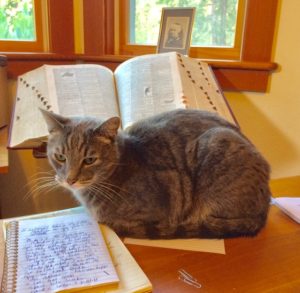 The way we begin each session of the writers’ group I run at the Oregon State Penitentiary is with a five-minute writing prompt. Every two weeks I come up with another prompt, generally a single word – trust, hope, friendship, power – that invites the guys to write about what they know and how they feel. Sometimes we do lists: 10 pieces of advice I’d offer to a new inmate; 10 things I’d do if I were prison superintendent for a day (an all-time favorite).
The way we begin each session of the writers’ group I run at the Oregon State Penitentiary is with a five-minute writing prompt. Every two weeks I come up with another prompt, generally a single word – trust, hope, friendship, power – that invites the guys to write about what they know and how they feel. Sometimes we do lists: 10 pieces of advice I’d offer to a new inmate; 10 things I’d do if I were prison superintendent for a day (an all-time favorite).
Last week I had them write a list of 10 things that keep them sane, that allow them to wake up every morning, morning after morning, year after year – some of them for more than 30 years – and keep on keeping on. The answers ranged from finding a sense of purpose to listening to music, from spiritual practice to indulging in Skittles. Faith. Will power. The knowledge that others have it worse. Books. Visitors. And, of course: WRITING.
I write along with them. They want me to, and I want to. It is part of the writers group atmosphere I work hard to establish. This isn’t a class. It’s a group of people trying to make sense of the world and themselves through writing.
So I wrote my list, in full realization that it is infinitely easier to stay sane if you are me, healthy and free. Still, there is enough out here in the “free world” to make you run out into the streets screaming, to bring you to your knees sobbing. I offer my list below in hopes that you, dear reader, will write in with yours. We all need to expand our keeping-sane repertoire.
1. Writing. Always, since those first leatherette diaries with locks that didn’t lock, I have used writing to make sense of my world, to capture experience so I can learn from it, to try to understand others, to talk sense to myself.
2. Reading. Since I read my first chapter book (My Friend Flicka) and disappeared into someone else’s world, reading has been for me both an intense exploration of and immersion in the other and the most glorious of escapes.
3. Lists. I make them. They bring order to chaos. They calm me. I’ve written about them here.
4. Sweaty, full-on, challenging physical activity: long-distance biking, running, hiking, ballet, barre, holding two-minute planks, mini-triathlons. Without exercise, my mood plummets. I can be awash in negativity.
5. Simon, the cat. Sonny, the cat. Tenderberry, the cat. Sally, the cat. For cat-lovers, I need say no more. For others, you wouldn’t understand.
6. Solitude.
7. The heart-stopping physical beauty of the place I call home. Plus clouds, from every angle, especially looking down from 30,000 feet.
8. Sleep. Yes, it does knit up the raveled sleeve of care. I’ve written about it here.
9. My stubborn belief that most people are kind.
10.My family. I put them last in recognition of the fact that they are also sometimes the cause of my temporary insanity.
Now your turn.
May 31, 2017 8 Comments
Sleep
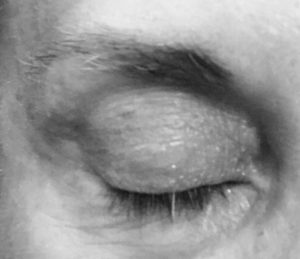 Let’s take a moment to contemplate the magic that is sleep.
Let’s take a moment to contemplate the magic that is sleep.
No, not: How much sleep do I need? What happens if I don’t get what I need? How can I sleep better? Deeper? How do I create the best “sleep hygiene”? What about insomnia? Sleep apnea? Sleeping pills? Circadian rhythms?
No.
I am talking about the transformative power of sleep. The way you can go to bed emotionally drained, psychologically fragile, wounded, staggering, after a day that ricochets you off hard surfaces, harder surfaces that you knew existed, places you didn’t want to go to but did, thoughts you didn’t want to think but did, emotions you were unprepared to feel but felt. That kind of day.
And you can’t think your way through it. And you can’t talk your way through it. And you can’t eat your way through it (although you try). But you can throw open the windows to a cool night and settle between clean sheets and close your eyes and breath, not imagining the impossible will happen.
And then it happens. You sleep. And you awake your own strong, true self. Ready. Again.
May 18, 2017 4 Comments
Old World New World
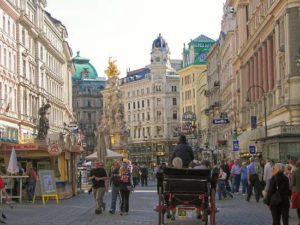 Tomorrow I leave for several weeks to teach writing seminars in Vienna. I am very very interested in what people there think about Trump-era America. I will be asking everyone I meet and reporting back to you.
Tomorrow I leave for several weeks to teach writing seminars in Vienna. I am very very interested in what people there think about Trump-era America. I will be asking everyone I meet and reporting back to you.
Although the population of the US has become increasingly diverse, still about 72 percent of Americans trace their ancestry to Europe. (Before 1965, policies limited immigration and naturalization opportunities for people from areas outside Western Europe. Exclusion laws enacted as early as the 1880s generally prohibited or severely restricted immigration from Asia.)
America was considered “the new world.” The “Old World” was Europe. Thus, many of us (particularly the almost three-quarters of us whose families originally came here from Europe) may think we have much in common with western Europe.
Actually we don’t.
Because I will be asking “Old World” Austrians how they perceive “New World” Americans these days, I wanted to get a better sense of the (everyday experience) lens through which they see us. In doing that research, I discovered how little we have in common.
Here’s a short list:
Elections of 2016. In 2016 election, the Trumpian far right candidate was defeated. Former Green Party head Alexander Van der Bellen, the child of political refugees and a committed liberal, won.
Health care. In Austria, everyone receives publicly funded care. (They also have the option to purchase supplementary private health insurance.)
Energy. Lower Austria, the largest of the country’s nine states, gets 100 percent of its electricity from renewable energy (hydro, wind, solar). The rest of Austria gets 75 percent of its electricity from clean/ renewable energy.
Education. The country’s university system was free until 2001. Now the cost for Austrian citizens is €366 per term ($391). This includes masters, Ph.D., medical school, etc.
Language. Multilingualism is the rule – not the exception – in continental Europe, with more than half of EU citizens speaking a second language. In the US, 22 percent of us can speak another language (and it is far and away Spanish, the result of first and second generation Americans with Mexican ancestry)
Vacation. By law, every country in the European Union has at least four work weeks of paid vacation. Austria, which guarantees workers the most time off, has a legal minimum of 22 paid vacation days and 13 paid holidays each year. Parental leave is law.
Who we are must seem increasingly strange to Europeans. Let’s see what they have to say.
April 19, 2017 3 Comments
What, me worry? Hell, yes.
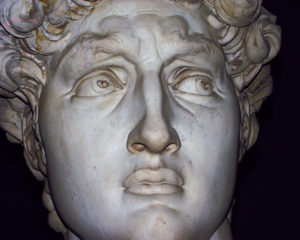 Wait…isn’t worrying is bad for your health? Doesn’t worrying turn you into a negative, pessimistic person who sees danger around ever corner? Doesn’t it cause stress, which triggers tsunamis of cortisol and lead to chronic inflammation, the gateway to all kinds of diseases?
Wait…isn’t worrying is bad for your health? Doesn’t worrying turn you into a negative, pessimistic person who sees danger around ever corner? Doesn’t it cause stress, which triggers tsunamis of cortisol and lead to chronic inflammation, the gateway to all kinds of diseases?
Maybe not.
Maybe there is a positive side to worrying. As a life-long, deeply committed, card-carrying worrier (well, okay, I don’t have a card), I hope so. And research backs me up.
To be clear, I am not talking about obsessive, nail-biting, heart-palpitating anxiety. Occasionally, that’s called for, as when the Zombie Army is at your door or the person appointed to head the Department of Education doesn’t actually support public education. Those unlikely scenarios aside, I’m referring to everyday worrying: What if I catch this awful stomach flu everyone seems to have? Will I run out of gas before I reach the gas station? Suppose nobody buys my newest book? Any of my books?
Here’s the good news for us committed worriers:
We are more highly evolved! Worriers are more aware of potentially threatening situations than non-worriers. And that awareness would have kept our ancestors alive while other, less cautious cavefolk perished. It’s kinda nice up here at the top of the evolutionary pyramid, ain’t it?
We’re quick(er) thinkers. Moderate levels of some worry-related hormones (like cortisol) actually fire up the brain’s learning abilities, according to research from the University of Colorado. If you think you’re in trouble, it makes sense that your brain would be hyper-focused and ready to absorb and tackle new information, the research suggests.
We’re motivated. Obsessive worrying can be debilitating, but worrying-lite can lead to constructive, thoughtful self-evaluation and action, shows research from Stanford University. Anxiety can push us to plan more carefully, work harder and persevere.
We’re better prepared to deal with both good and bad news. There’s a kind of worrying that researchers have dubbed “defensive pessimism.” It’s when we dive head-first into the worry pool, but as we’re swimming/ flailing around we come up with contingency plans for various outcomes. Whatever does happen, we are in better shape to cope with (or enjoy!) it than those who try to distract themselves from worry. So says some very interesting research from UC Riverside.
As one of the UC/ Riverside researchers is quoted as saying, “Set your expectations low and think through the negative possibilities. It drives optimists crazy.” And it works!
Think of worrying as self-empowerment. I do. (When I’m not worrying about worrying so much.)
April 5, 2017 2 Comments
I gotta little list
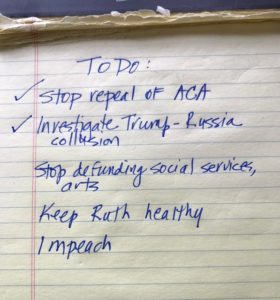 I love making lists. Even more, I love checking off items from the lists I make. Often I do something that is not on my list, and I add it to the list just for the joy of checking it off. Oh yes, I know some of you do this too. I have also been known to make lists of my lists. That may be taking it too far.
I love making lists. Even more, I love checking off items from the lists I make. Often I do something that is not on my list, and I add it to the list just for the joy of checking it off. Oh yes, I know some of you do this too. I have also been known to make lists of my lists. That may be taking it too far.
Here is a list of the reasons I love making lists.
1. Making a list quiets the omg moments that keep me awake at 2 am.
2. Making a list is a low-bar entry to actually doing whatever needs to be done. Sure, no sweat, I can make a list! It is way less scary (not to mention time-consuming) than starting the project itself.
3. Lists break down huge tasks (writing a book, getting rid of a President) into manageable action items.
4. Lists simplify life. Whaaat? All I have to do is these 5/ 10 things!
5. Lists help me think things through. They demand logic.
6. Lists clear my brain. I no longer have to try to remember all this. I wrote it all down!
7. Lists are finite. It may not seem like it, but my tasks are not endless!
8. Lists keep me from procrastinating. Uh, Friday…and two more things on the list? Better get to them.
9. Crossing something off a list = instant gratification.
10. If you save your lists (um, yes, I do), they provide an historical record of your life. A power point diary.
I also love to READ lists: The 500 greatest albums of all time. The 100 books everyone should read. Twenty places to visit before you die. Top 10 most popular lists on listserv. When the “25 random things about me” crazy hit Facebook, I read everyone’s list. Most favorite part of the old Letterman Show…can you guess?
March 29, 2017 3 Comments
My Favorite Things
 For this post, blame my friend Florian Niederndorfer, a reporter at DerStandard, who alerted me to a news story announcing the appointment of Patrick Park as our new ambassador to Austria. The selection (made by you-know-who) was based on … wait for it … Park’s love of the movie “The Sound of Music.” Which was filmed in and around Salzburg. Which is in Austria. So a big fan of the movie would be very very knowledgeable about Austria having watched the movie as many times as apparently Mr. Park has. (“I know every single word and song by heart,” he is quoted as saying.) Okay, then: Hired.
For this post, blame my friend Florian Niederndorfer, a reporter at DerStandard, who alerted me to a news story announcing the appointment of Patrick Park as our new ambassador to Austria. The selection (made by you-know-who) was based on … wait for it … Park’s love of the movie “The Sound of Music.” Which was filmed in and around Salzburg. Which is in Austria. So a big fan of the movie would be very very knowledgeable about Austria having watched the movie as many times as apparently Mr. Park has. (“I know every single word and song by heart,” he is quoted as saying.) Okay, then: Hired.
I too know the songs by heart. But not being an old, rich, white-man crony of the man in charge, I lack the essential credentials.
Nevertheless, she persisted.
No, not in angling for the position, but rather in revisiting the musical score to see what might be running through our new ambassador’s head. How about “My Favorite Things”? I’m thinking that maybe, amidst all of the current sturm und drang (see I even know a little German! Hire me!), we could take a moment to focus on what continues to give us joy – our favorite things.
When Mr. Ambassador Park sings the opening lines to the song, I wonder whether he thinks about who that biting dog and stinging bee might be?
When the dog bites
When the bee stings
When I’m feeling sad
I simply remember my favorite things
And then I don’t feel so bad
Herewith, the favorite things that are sustaining me and keeping me (almost) sane.
The news, almost every day, from Oregon, Washington and California of governors, legislators, judges, faith-based groups and corporations taking big, bold, principled stands against the thoughtless, hurtful, ignorant, dangerous, unAmerican edicts coming from the White House.
But also, coming from a far different place:
>The glorious, loving expansion of our family from five to six truly outstanding humans
>Wordstreak
>Van Morrison, then, now, forever
>The extraordinary men in my Lifers’ writing group
>That floating space between sleep and wakefulness
>Rain. Soft hiss, pounding needles, open windows
>My Seattle storytellers
>Kim
>Kettlecorn
And yes, Lizzie, of course: whiskers on kittens.
Looking forward to your lists. Post in comments!
February 22, 2017 5 Comments





